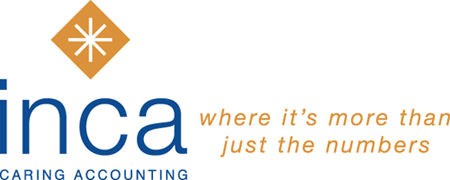
The period between deciding you’re going to start your own business and making it happen will be exciting – and very busy.
You’ll never get the time again, and how you use it will be critical to the future success of your venture, but with such a lot to think about and action, it’s easy to get so focused on ticking tasks off your ‘to do’ list, you omit to ask yourself fundamental questions about your business.
As a practice specialising in helping start-ups, we often meet business owners who are brimming with passion and enthusiasm, but haven’t addressed some of the basic questions which, once thought through and answered, make planning for success much simpler.
Going back to these questions retrospectively can waste time, and might even mean undoing work, so it’s best to consider them as early as possible.
1. What problem/need am I solving?
Pretty basic, but unless you can answer this one, you don’t have a viable concept! For your business to succeed, there must be a demand for the service you’re offering, and it will be this level of demand that determines the value of your service i.e. how much you can charge. Need can be connected to helping your customer avoid/alleviate pain or achieve pleasure. Most buying decisions by customers are based on emotion and then justified with logic, and more will choose a service that helps avoid or alleviate a problem in their lives.
2. What are the key benefits of my business?
New business owners frequently focus on communicating the features, rather than the benefits of their business.
If you run a roofing business for example, your customers are unlikely to be interested in knowing the full technical details of the products you use (a feature), but the fact that you provide a 10-year guarantee on your work giving completed peace of mind (a benefit) is something you should shout about.
If you’re uncertain if something is a feature or a benefit, imagine you’ve described it to your customer and they ask you, “Why is that good for me?” If you can answer the question, it’s a benefit, if you can’t it’s a feature.
3. Who are my ideal customers?
To promote your business effectively, and attract the right kind of people, you need to have a clear picture of what your ideal customer looks like, and where you’re going to find them. It will be essential to have a detailed understanding of their lifestyle, interests, habits, likes and dislikes. The more you know about them, the more accurately you can target your sales and marketing activity, and the better your conversion ratio will be.
Bear in mind that describing your ideal customer as ‘anybody’ is as good as saying ‘nobody’!
4. Have I done my research & analysis thoroughly?
It’s vital you research and analyse every aspect of your business idea in depth. The information you gather will inform your marketing plan – your route map to success. Do you know exactly how big the opportunity is? Have you undertaken a SWOT (Strengths, Weaknesses, Opportunities & Threats) analysis? Are you clear about who your competitors are?
You can’t play the game if you don’t know the players, and you need to understand their offerings to ensure yours is superior. Remember, this doesn’t mean you actually need to be better at delivering the service, you need to be better at meeting the needs of your customers (back to solving problems). If you disagree, ask yourself whether the world’s most successful restaurant business makes the best hamburgers.
5. What’s my USP?
Why will customers purchase from you rather than anyone else? Answer this question and you have identified your USP or Unique Selling Proposition.
Every business needs to set itself apart from other businesses in the same field, and promoting your USP in all your marketing communications will help you to do this.
6. What are the fundamental things I believe in?
In the same way that as an individual, you have ethical standards and a set of values you live by, so should your business. Identifying what these are, and being able to describe them will help your staff and customers to understand what your business stands for, help you attract like-minded people, create a differential, and serve as a reference point if you find yourself needing to make a difficult decision.
7. Do I have the skills I need?
At least in the beginning, most start-ups will have limited resources, and business owners will have to do as much of the work as they can themselves. This can come as something of a culture shock if you’ve come from a corporate environment with dedicated resources for areas like Marketing, Sales, Finance, HR, Admin and so on.
Take time to think through all the obligations and commitments you will have. Do you have all the knowledge and skills you’re going to require? Don’t panic if the answer is ‘no’ – it would be surprising if it were anything else! Take the time to prepare an organisational chart for your company – even when there’s only you in the business, and it’s your name against every department. Now rate your performance in each area to see where you need personal development, or where it might make sense to consider outsourcing this aspect of your business.
Of all the general business skills, marketing and sales are the two you’re going to rely on most (assuming you have an accountant to help with finance), and if you lack experience or confidence in either area, there are plenty of ways you can learn the basics. In our opinion, these are the two most important skills you need to develop in order to give your business the maximum chance of succeeding.
8. How am I going to continue to improve myself?
The most important asset in your business is you, and once your business is up and running, you’ll need to constantly hone your skillsets and add to your knowledge in all areas to maintain an edge on your competitors. Planning in your ongoing professional development is critical, so start thinking about areas where you might be competent, but where improving yourself will benefit your business.
As personal development legend Jim Rohn put it: “Don’t wish it was easier wish you were better. Don’t wish for less problems wish for more skills. Don’t wish for less challenge wish for more wisdom.”
9. What does success look like to me?
How you measure success is likely to be very different to anyone else. It’s usually not just about wanting to make money – it’s about what you want to do with the money you make. Having a successful business could enable you to acquire material things, spend more time with the people who are important to you, indulge in a pastime you love, or make a difference to a cause that’s close to your heart.
Whatever your long-term vision of success may be, you need to be able to define it so you can set out the interim goals, track your progress, and recognise when you get there!
 And finally, one question we’d like to ask you: Do you have the right accountant?
And finally, one question we’d like to ask you: Do you have the right accountant?
Your accountant is likely to be your closest business advisor, so having the right one by your side is essential.
Start-ups choosing Inca improve their chance of successfully making it to their 5th birthday by 185% in comparison to the national average, benefit from proactive tax advice, introductions to new business opportunities, and ongoing self-improvement through our business workshops.
If you’ve already appointed an accountant, can they deliver these benefits? If you’ve already begun trading, how often do you hear from your accountant – other than when they call you about your books? And when was the last time you can honestly say they really added value to your business?
With Inca, your business will have the very best chance of success, and you will have the best chance of realising your dreams. Call us now on 01235 868 888 for an informal chat!



